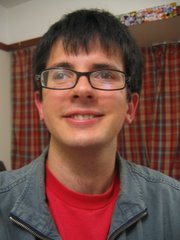I love science, and I think that it is interesting to anyone if it is explained well. I also think it is very important. Expanding our scientific knowledge and applying it to predicting the future, developing new technology and using our resources wisely really changes the world and improves all of our lives. Without science we would be in a very different world today.
Popular science, on the other hand, puts emphasis on all the wrong parts of science. There is a huge emphasis on difficult physics concepts like quantum mechanics and particle physics. As a student who studied one year of physics at university, I don't think it is helpful to try to explain this, because of its difficulty. Take two objects colliding. One is spinning and they are both strange shapes. Predicting what will happen after they collide is a very difficult problem to solve and it depends on other factors like the density of the material and their surfaces. If I can't solve this problem, what hope is there for people who have no scientific background to understand this or something much more complicated like quantum mechanics? Richard Feynman (one of the most important people in the development of the theory) said "I think I can safely say that nobody understands Quantum Mechanics" and he included himself in that.
Maybe I should be more positive about people attempting to make it more accessible though. It is certainly an admirable thing to attempt. But there is very little focus on anything other than very difficult theories. I often tell people about materials science because that is my subject, and they are almost always very interested to find out about it. I often tell people about cork, for instance: Most materials bulge outwards when you squash it from one direction, but because of the cell structure, cork actually shrinks in both directions. This is why we can use it for wine bottles. If it bulged out when it was pushed, how could anyone ever get a cork into a bottle? There are lots of good scientific pieces like that, which people can understand (even better with a diagram!) and yet they are blocked out by the amount of popular science focussing on other things.
We should all learn from Bill Bryson, who covers large chunks of science in a way that most people can understand and shows what a wide range of ideas that science contains. His book is called "A Short History Of Nearly Everything" and it is interesting to scientists and non-scientists alike.
The following posts have no fixed theme or style, but I hope you enjoy reading them!
Saturday, 3 March 2007
Subscribe to:
Post Comments (Atom)

No comments:
Post a Comment